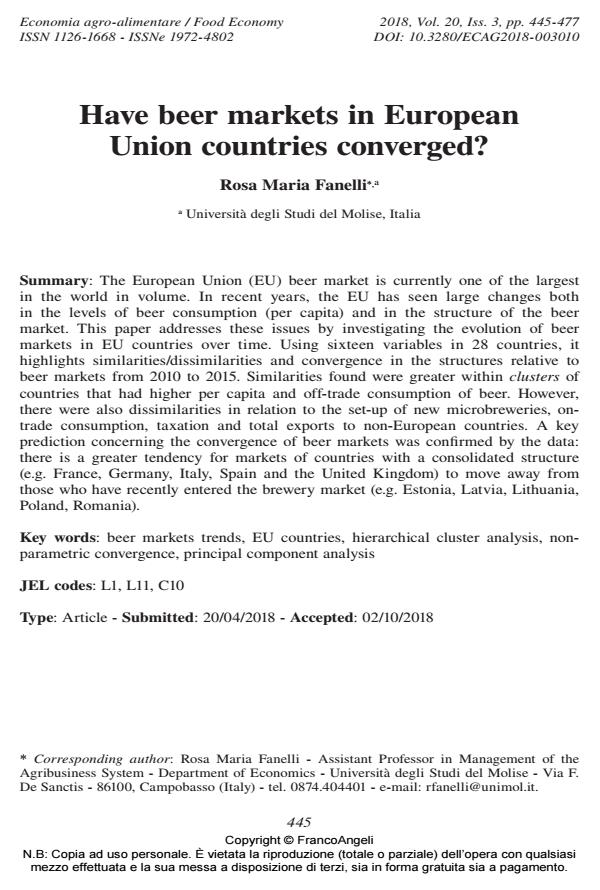Have beer markets in European Union countries converged?
Journal title ECONOMIA AGRO-ALIMENTARE
Author/s Rosa Maria Fanelli
Publishing Year 2019 Issue 2018/3
Language English Pages 33 P. 445-477 File size 299 KB
DOI 10.3280/ECAG2018-003010
DOI is like a bar code for intellectual property: to have more infomation
click here
Below, you can see the article first page
If you want to buy this article in PDF format, you can do it, following the instructions to buy download credits

FrancoAngeli is member of Publishers International Linking Association, Inc (PILA), a not-for-profit association which run the CrossRef service enabling links to and from online scholarly content.
The European Union (EU) beer market is currently one of the largest in the world in volume. In recent years, the EU has seen large changes both in the levels of beer consumption (per capita) and in the structure of the beer market. This paper addresses these issues by investigating the evolution of beer markets in EU countries over time. Using sixteen variables in 28 countries, it highlights similarities/dissimilarities and convergence in the structures relative to beer markets from 2010 to 2015. Similarities found were greater within clusters of countries that had higher per capita and off-trade consumption of beer. However, there were also dissimilarities in relation to the set-up of new microbreweries, ontrade consumption, taxation and total exports to non-European countries. A key prediction concerning the convergence of beer markets was confirmed by the data: there is a greater tendency for markets of countries with a consolidated structure (e.g. France, Germany, Italy, Spain and the United Kingdom) to move away from those who have recently entered the brewery market (e.g. Estonia, Latvia, Lithuania, Poland, Romania).
Keywords: Beer markets trends, EU countries, hierarchical cluster analysis, nonparametric convergence, principal component analysis
Jel codes: L1, L11, C10
- Green metamorphoses: agriculture, food, ecology R.M. Fanelli, A. Di Nocera, pp.307 (DOI:10.3920/978-90-8686-898-8_27)
Rosa Maria Fanelli, Have beer markets in European Union countries converged? in "ECONOMIA AGRO-ALIMENTARE" 3/2018, pp 445-477, DOI: 10.3280/ECAG2018-003010